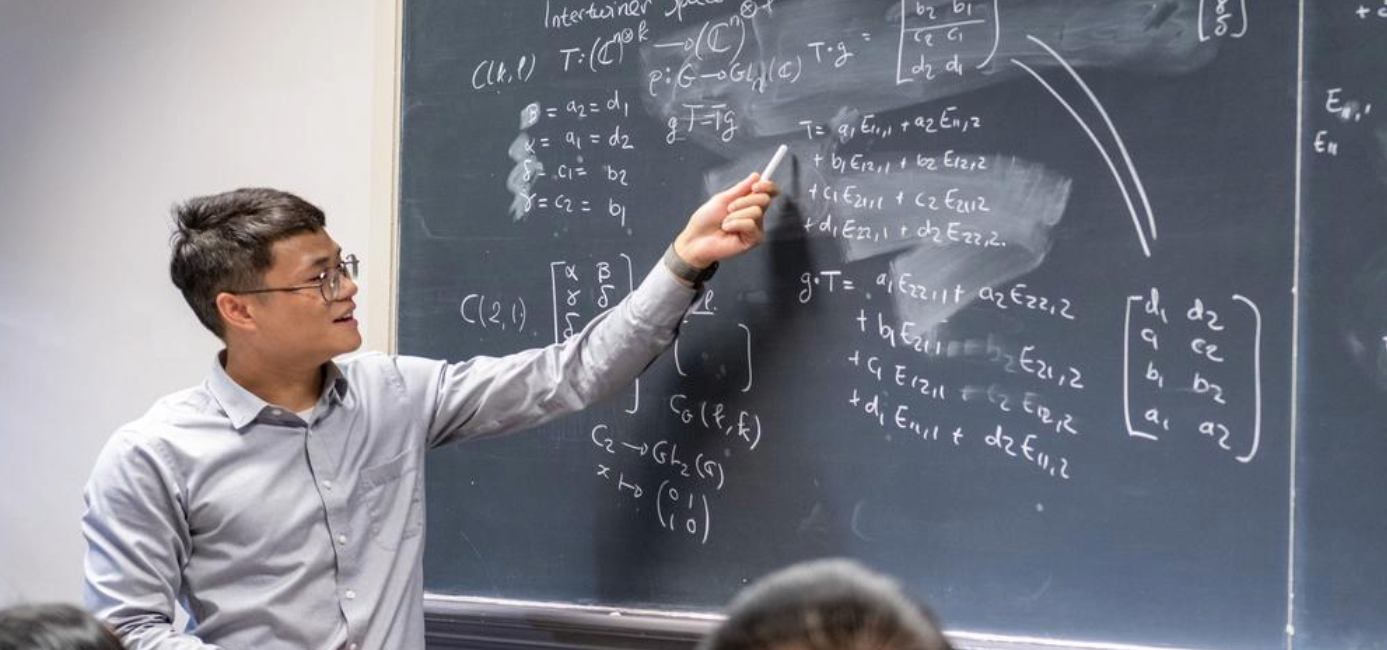WPI’s master’s in physics combines essential theoretical knowledge of physics principles with boundary-pushing research to equip you with the skills you need to pose and answer important questions and then solve problems in settings as varied as a pharmaceutical lab to a lecture hall.
Our expert faculty members are focused on helping you refine your interests, provide applied learning opportunities that will secure your professional future, and challenge you to make exciting discoveries and create new knowledge.
Many industries seek a physicist’s skills—whether it’s working on applied optics in telecommunications, project work for leading software companies, developing modeling for banks and the financial industry, or even research and development for pharmaceutical companies. WPI has particular strengths in Biophysics and Nanoscience and there are several state-of-the-art facilities available on campus for cutting-edge research.

Curriculum
WPI’s well-rounded approach helps you find your strengths with opportunities for applied learning and targeted research throughout the graduate curriculum. Working collaboratively with our accomplished and curious faculty across all disciplines, you’ll participate on current, cutting-edge research projects tailored to help you reach your specific goals.
Typical course work includes Classical Mechanics, Quantum Mechanics, and Advanced Electromagnetic Theory. A thesis plan or a directed research project with a qualifying exam is also required. Physics students may guide their own educational path with an Independent Study/Project that lets them choose, design, and follow the path of study that interests them the most.
Similar Majors
Refer a Friend
Do you have a friend, colleague, or family member who might be interested in a WPI graduate program? Click below to tell them about our programs.
Research for Master’s Degree in Physics
The modern facilities at WPI offer excellent opportunities to perform exciting research and make advances using the latest equipment and instruments like fiber optical tweezers and atomic force microscopy. Some of our innovative research labs include the IPG Photonics Laboratory, the Atomic Force Microscopy Laboratory, the Soft Matter Laboratory, and the Center for Computational Nanoscience.
Physics research at WPI is groundbreaking, collaborative, innovative, and inspiring. In an atmosphere of thrilling discovery and encouragement, students work on faculty research and lead independent research that will sharpen their interests for the next step, whether that’s a career in industry or an advanced degree.
Recent student research topics:
- Modeling of cargo transport via molecular motors
- Twisted light theoretical
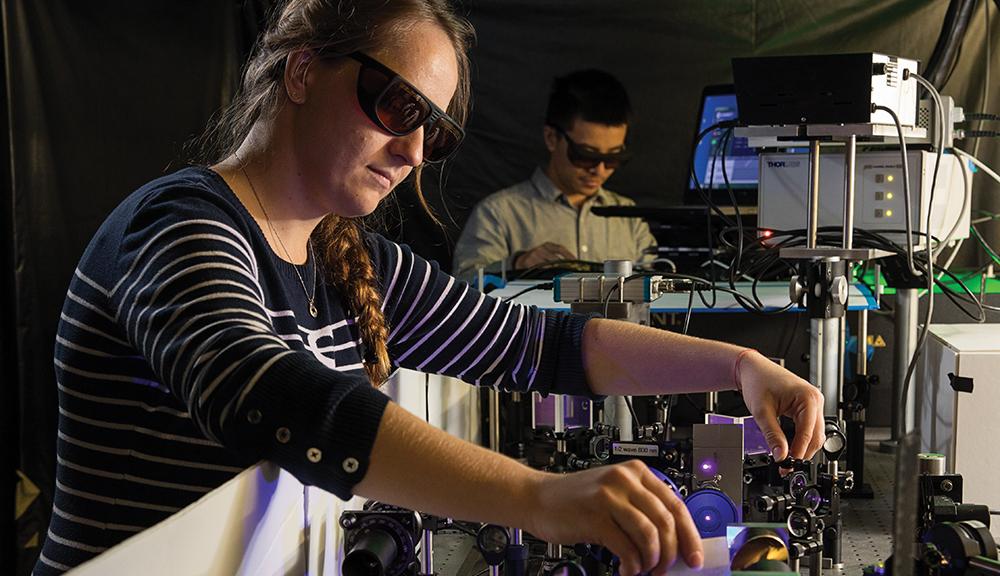
With specific strengths in the areas of biophysics and nanoscience, WPI’s physics program offers research opportunities that address areas from healthcare to lasers for missile avoidance systems.

The interdisciplinary approach to physics at WPI gives students opportunities to broaden their research and, therefore, have a wider impact with their work.
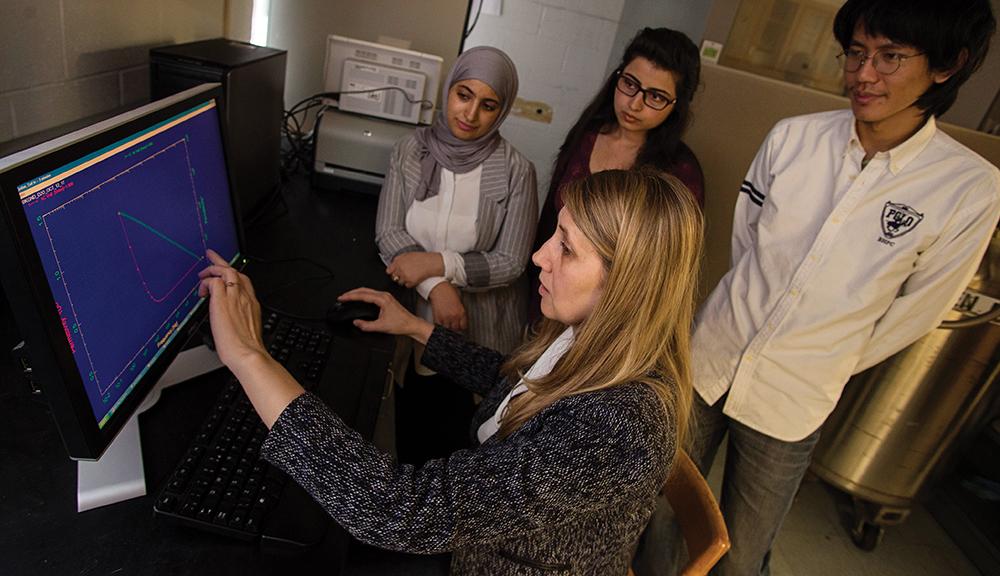
Physics presents opportunities for inspiring careers in areas including the environment, medicine, health, and national defense.

State-of-the-art facilities across the campus include the WPI Life Sciences & Bioengineering Center at Gateway Park, and labs such as the Atomic Force Microscopy (AFM Laboratory) and the Center for Computational Nanoscience with Computer Clusters.
- Modeling of amino acids
- The search for exoplanets
Graduate Studies Series
Team members from Graduate & Professional Studies host quick and convenient webinars designed to highlight popular topics when starting grad school. Take a deep dive into specific areas of interest such as how to secure funding, how to ace your application, an overview of student services, and more!
Faculty Profiles

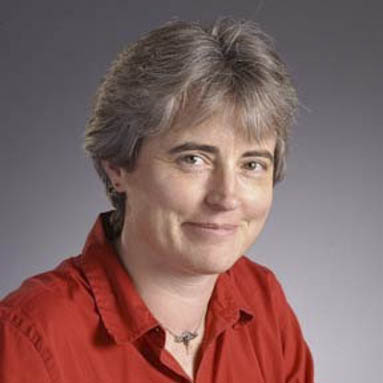




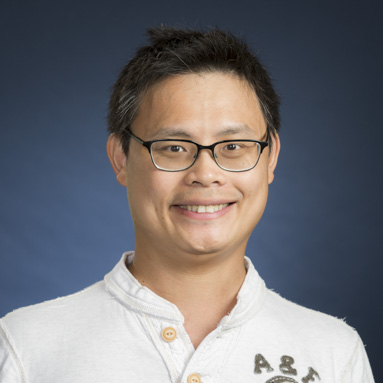
Have questions?
WPI's dedicated graduate student support team can help.
Earn a Master’s in Applied Physics Instead
Interested in exploring the interface of physics and other scientific disciplines instead of our traditional master’s degree in physics? Earn a master’s in applied physics which combines physics, mathematics, and engineering principles to amplify your work. Students will collaborate closely with faculty and explore the interface of physics and other scientific disciplines. Create new breakthroughs and structure your own academic path at WPI.
If You Are a Physics Teacher, Explore a Master of Science in Physics for Educators
If you’re a physics educator looking to advance your career, reignite your passion for the field, and encourage students to discover the excitement of physics, explore our master of science in physics for educators program. Learn how to improve course offerings and implement new strategies in the classroom. You’ll also have access to a supportive network of physicists and work closely with our expert faculty who have a deep passion for physics.
When You’re Ready to Take the Next Step in Your Career, Earn a PhD in Physics
Elevate your career, work collaboratively with our innovative faculty, and lead transformative research with a PhD in physics. You’ll have the opportunity to tackle research endeavors with passionate colleagues from computer science, life sciences, and mathematics. Are you interested in taking advantage of our multidisciplinary approach and use a combination of physics, mathematics theories, and engineering principles to make an impact? Explore our PhD in applied physics which prepares students for careers in research and leadership. You will have access to cutting-edge equipment and space to conduct research alongside our expert faculty.
Earn a Nuclear Science & Engineering Certificate
Are you interested in advancing your capabilities and preparing for a nuclear industry career? Earn a graduate certificate in nuclear science and engineering, which dives in topics like nuclear power, radioactivity, nuclear reactor safety, and more in a total of 12 credits. Advance your career now and join the growing demand of qualified nuclear engineers worldwide.
Are You Ready to Get Started on Your Bachelor’s Degree in Physics?
Are you interested in a career in physics, but need your bachelor’s degree first? WPI has two BS programs in physics; you can expect to work closely with faculty members in either program to achieve your goals. The degree in physics lets you explore all the areas in physics you find fascinating. From experimenting with electricity to understanding the big bang theory, your work in this degree program will give you hands-on project work and research from your very first year. You’ll be able to take that understanding and apply it to a variety of disciplines to expand your understanding and your work. If you’re interested in blending a curiosity about physics with engineering and mathematics, WPI’s applied physics BS will match your interests with your academics. The BS in applied physics will give you a foundation in the commonalities among the principles and theories of all three disciplines so you’ll be able to apply them to practical devices and systems. Your studies will let you work on hands-on projects to make discoveries in areas like optics, physics, electromagnetism, computational physics, or nuclear science and engineering.
Earn a Physics Minor to Advance Your Academic Path in Other Disciplines
If you are fascinated by physics, but are already pursuing a degree in another discipline, check out WPI’s different minors in physics. Do you find yourself always looking at the night sky? A minor in astrophysics will let you pursue your passion in that area. Your minor courses will give you a solid academic background in everything from the properties of planets to space environments to the properties of the solar system. If your physics interest tends to go toward the smaller realm, a minor in nanoscience lets you explore the tiniest particles in devices, materials, molecules, and living matter and gain understanding of how they all behave on the most minute level. If you’re more interested in the general understanding of physics and how you can use that knowledge to apply to other disciplines, a minor in physics will give you the needed background. A physics minor will help you in any career as it gives you a different perspective from which to approach and solve even the most complex problems.
What Does a Career in Physics Look Like?
If you’re an undergrad and wondering about a career in physics or what kind of master’s in physics jobs are available, look into WPI’s career outlook page or the career outcomes page in physics. As a well-rounded professional, a background in physics will only serve to augment your work in academics, business, and industry. In today’s increasingly complex job market, a background in physics gives you an edge.
